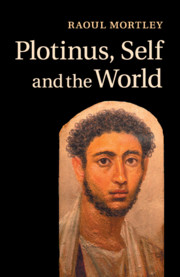Book contents
- Frontmatter
- Contents
- Preface
- Introduction
- 1 The individuated self and memory
- 2 Memory and forgetting
- 3 Ignorance, love and play
- 4 Plotinus’ Eros
- 5 The self: ‘and we too are kings’
- 6 Being and having
- 7 Self-knowledge
- 8 Art and the seduction of beauty
- 9 Face, image and the self
- Conclusion
- Bibliography
- Index
- References
1 - The individuated self and memory
Published online by Cambridge University Press: 05 October 2014
- Frontmatter
- Contents
- Preface
- Introduction
- 1 The individuated self and memory
- 2 Memory and forgetting
- 3 Ignorance, love and play
- 4 Plotinus’ Eros
- 5 The self: ‘and we too are kings’
- 6 Being and having
- 7 Self-knowledge
- 8 Art and the seduction of beauty
- 9 Face, image and the self
- Conclusion
- Bibliography
- Index
- References
Summary
We may begin with the proposal that if Plotinus invented the individual self, he may also have contributed to the invention of the autobiography in the form of the Confessions of Saint Augustine, a Christian writer who was a reader of the Greek Neoplatonists. We speak of the self in what may be termed the pre-postmodern, Cartesian sense. This self is conscious of itself as well as of other things, and focuses in an individual way on its own experiences and its moral and epistemological tasks. We will argue throughout that Plotinus developed and accepted the idea of the fully embodied self, that his refusal of the flesh has been somewhat overdone, and we speculate that this self may well lie behind Augustine's development of the autobiography, and his own very conscious self-explorations in the Confessions. Plotinus took the ego into history, through his exploration of the self, but because he had no interest in history and specifically the history of human individuals, he took it no further. The true way forward lay in superseding the sphere of history, in going back up to what lay before. Augustine, on the other hand, was ready for the historical self since the early Christian movement had hardened into a church, and this church was beginning to write histories of itself. We know that Plotinus sought to supersede the body, that he was ashamed of the flesh, that he sought to escape otherness, but Plotinus the philosopher never writes anything off. The perfection of the All means that nothing is isolated from being: all matter is impregnated with form (logos), and it is therefore preserved in some way. Nothing can be written off. But on the other side, a religious movement which embraced history may well have felt at home with the idea of ‘one's own self’. And Plotinus’ view of the self, as we shall attempt to show, is very much tied up with being one's own, and being what one possesses.
- Type
- Chapter
- Information
- Plotinus, Self and the World , pp. 14 - 27Publisher: Cambridge University PressPrint publication year: 2013

